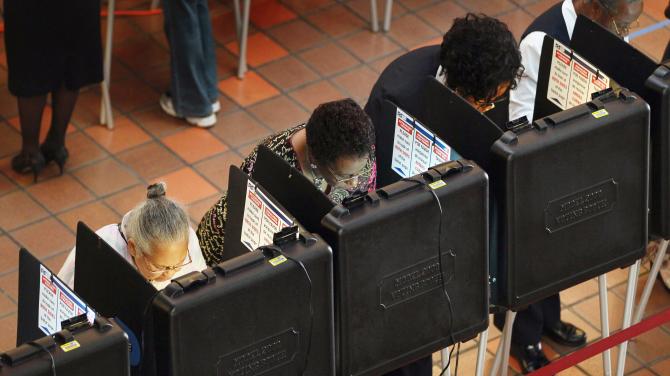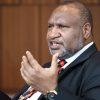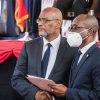
This Election Day, the potential impact of African-American voters is making headlines. The New York Times and The Nation recently reported that mobilizing black voters is the key to winning. And the data from 2008, 2010 and 2012 are clear: When black Americans vote, we determine elections.
One voting bloc that will hold considerable sway during these tight midterm races is African-American women. Historically overlooked and underestimated, black women outvoted their white counterparts by a full 11 percentage points in 2012—a year of historic black-voter turnout.
It’s become a foregone conclusion that black women can and will bring their power to the ballot box. As a result, this year we’ve seen the GOP reaching out to black communities with off-base, disingenuous messages on issues ranging from Medicaid expansion and equal pay to the minimum wage and voting rights in hotly contested states like Louisiana and Georgia.
With an eye to acknowledging the political power that black women wield, as well as raising to the table the critical issues that greatly impact black communities, ColorOfChange.orglaunched the #IfTheySpeakForMe campaign to raise awareness about out-of-touch candidates who neglect our perspectives in the black community until we are “useful” to them.
#IfTheySpeakForMe is about inspiring and encouraging black women, and those who care about black women, to let their voices be heard—to speak their truth. We’re addressing pertinent, hot-button topics that affect quality of life as well as our civil rights. When income inequality, attacks on our freedom to vote and a criminal-justice system that targets families frame the reality for so many, we need a more inclusive political conversation in which candidates from both parties are forced to speak up about the issues that matter most to black people.
On our microsite, ColorOfChange.org/Speak, we use various scenarios to illustrate what could happen when someone else speaks for you: You wind up going nowhere and getting results you never intended. And then we challenge black women to react to these scenarios, encouraging them to take this conversation back online to encourage their friends and families to turn out to vote on Election Day, when so much is at stake.
Through targeted campaign work in states across the country, ColorOfChange.org and our members have been pushing our elected officials to take a strong stance on issues ranging from economic matters like paid leave, equal pay and raising the minimum wage to concerns about rampant police violence and accountability that are destroying our families in communities like Ferguson, Mo., to voting-rights struggles in places like Georgia and Ohio, where the very freedom to vote has been compromised for thousands.
It’s more clear than ever this year that black voters can’t afford to leave votes on the table. Talk to your friends and family, watch and share the videos, and bring your community as well as your ideas to the voting booth. Use the hashtag #IfTheySpeakForMe and share what matters most to you.
Together we have the power to change the conversation. Silence is not the answer. If you don’t speak up, someone else will speak for you.
The Root aims to foster and advance conversations about issues relevant to the black Diaspora by presenting a variety of opinions from all perspectives, whether or not those opinions are shared by our editorial staff.
Rashad Robinson is executive director of ColorOfChange.org, the nation’s largest online civil rights organization. Follow ColorOfChange.org on Twitter.















